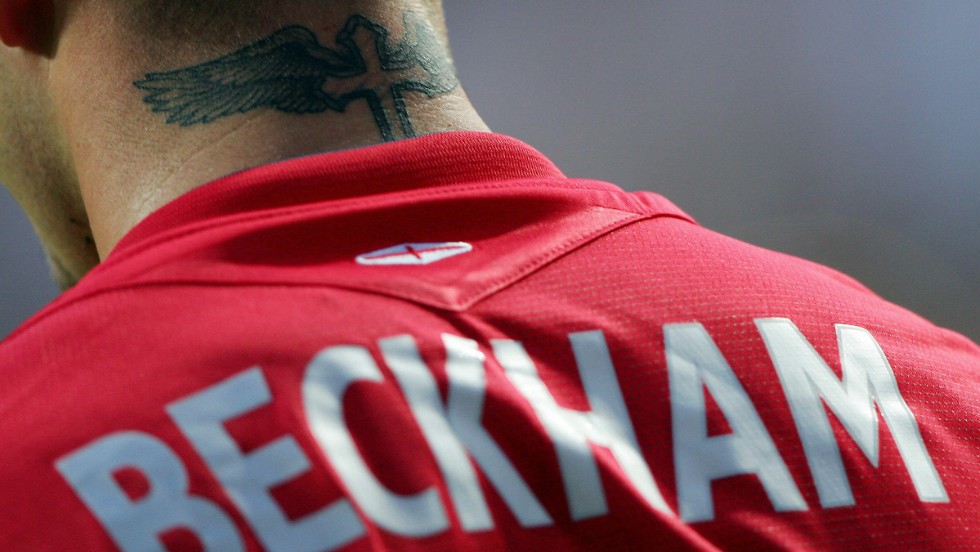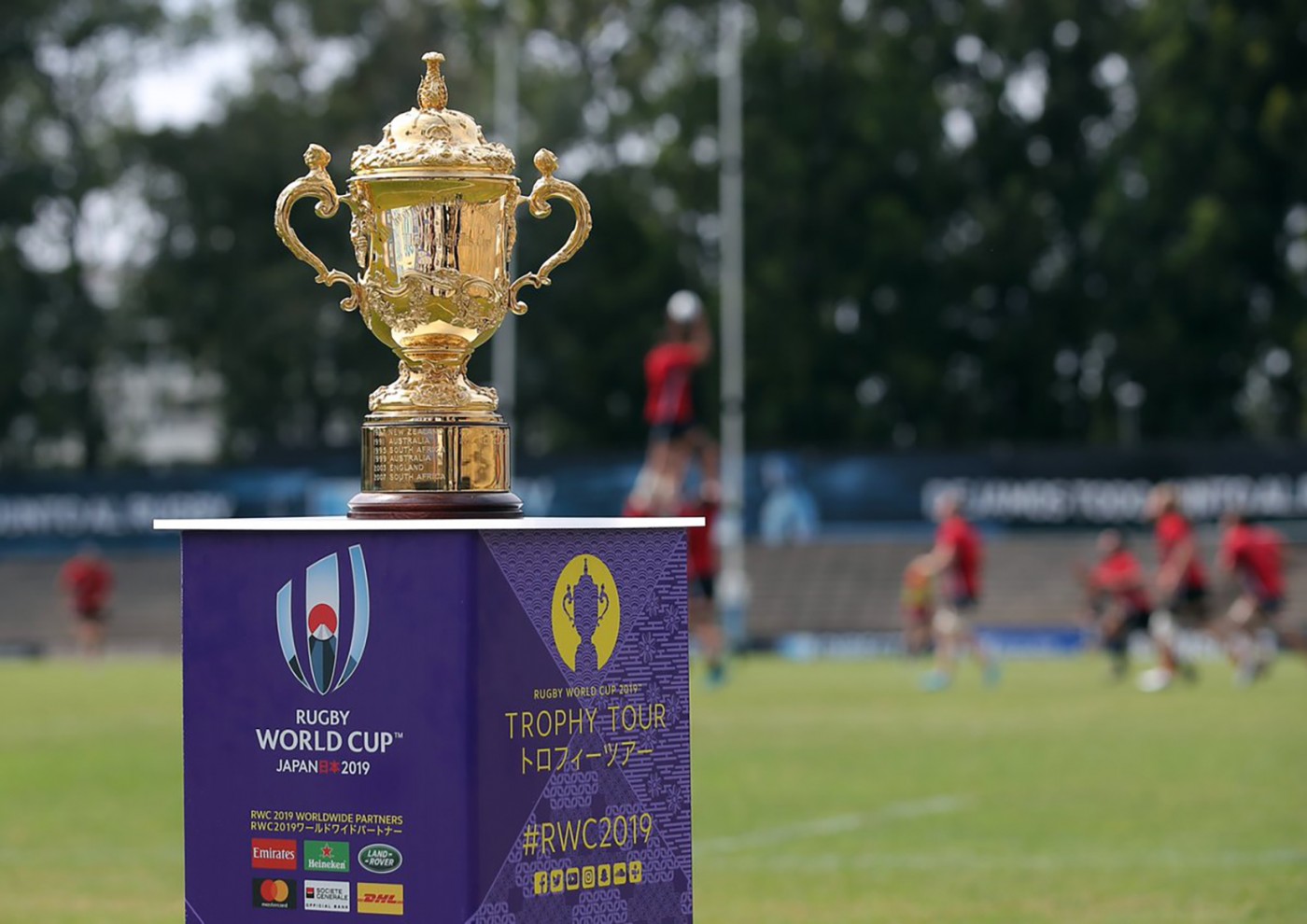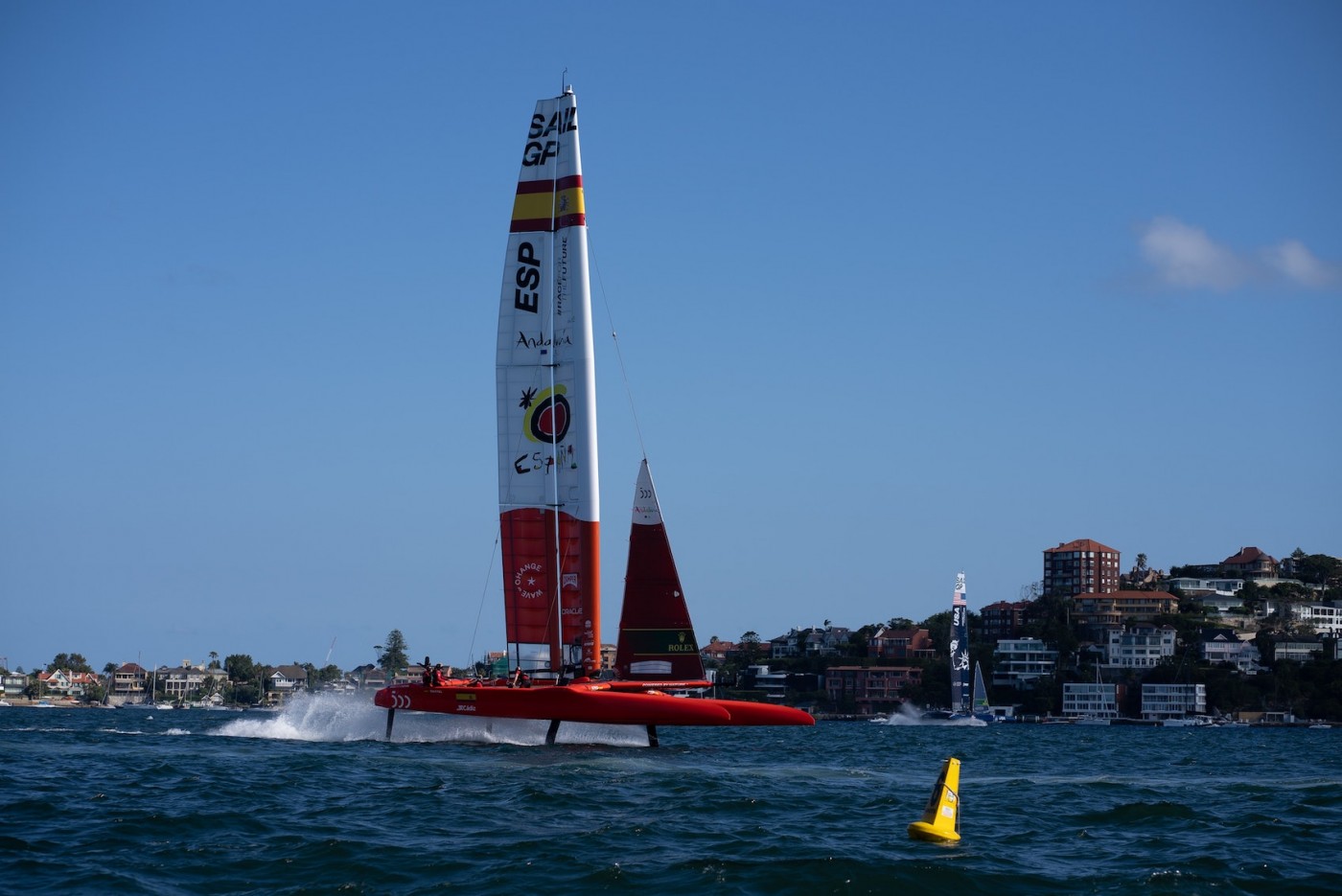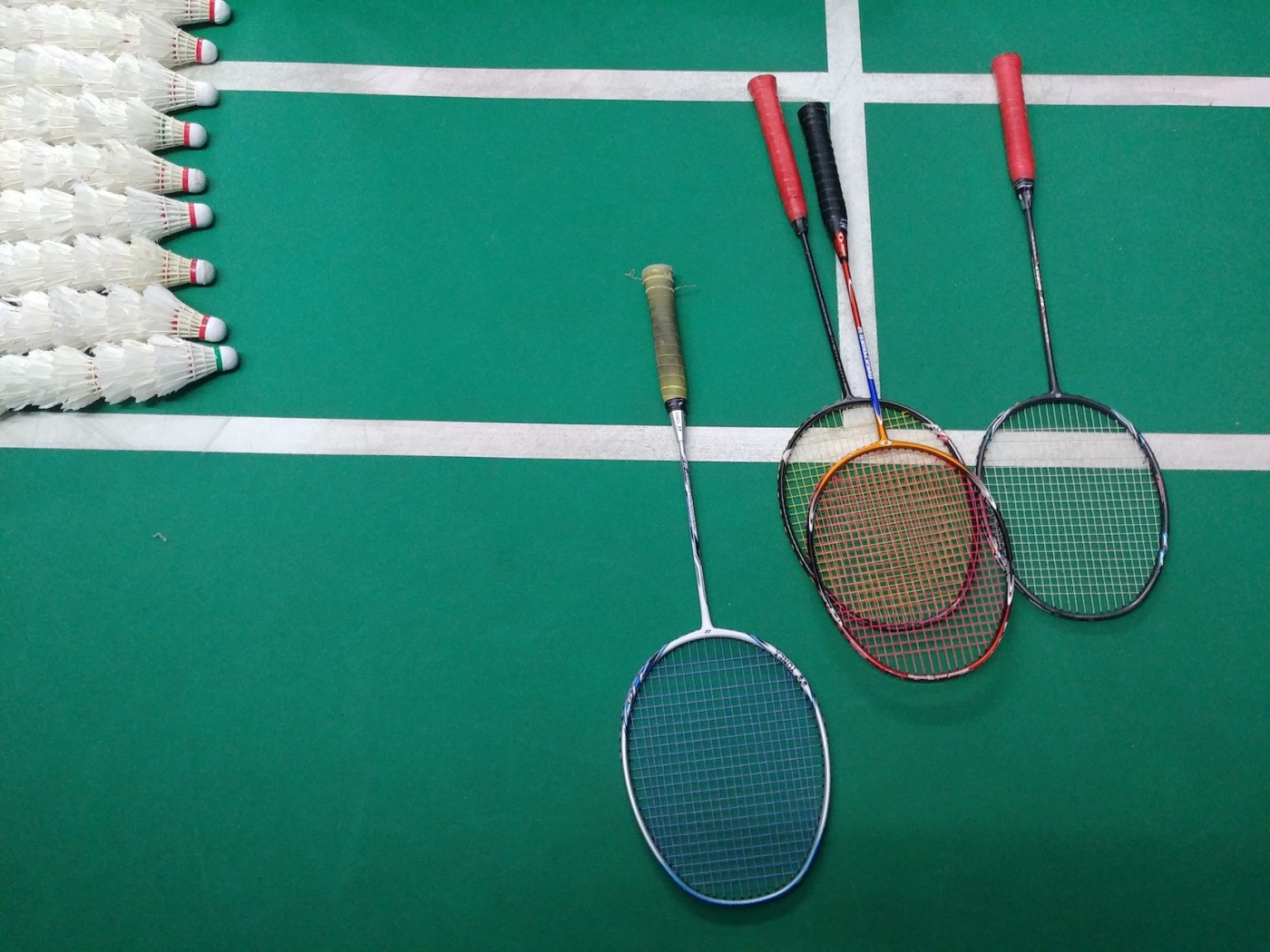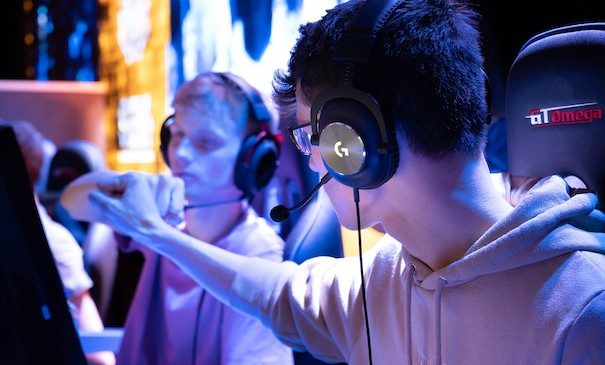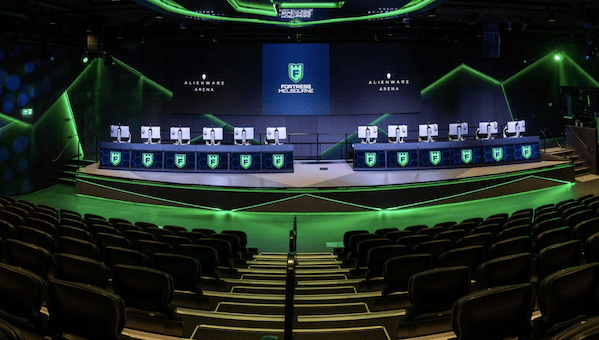On 25th June 2020 Guild Esports was presented to the world with David Beckham positioned front and centre as a co-owner of the new business. Guild Esports’ stated aim is to “build best in class esports teams” supported by “a talent pipeline in the UK based on the traditional academy model, which will see the ablest players coached and nurtured by industry leaders.” Executive Chairman, Carleton Curtis, stated that “[Beckham] will be instrumental in helping shape the coaching programme implemented at [the] academies” and that he will act as a mentor to players in the academy programme.
In Strive Sponsorship’s five years’ experience of working with the business of esports, little has caught the attention in the UK as much this announcement. Indeed, we have seen unprecedented interest and comment from those outside of the world esports as the Beckham brand has driven mainstream news coverage. We will summarise the facts and figures behind Guild Esports based on the details shared within their investor prospectus, analysing them and providing a point of view on their significance for both Guild and UK esports as a whole.

Beckham – the paid influencer and investor
In May 2020 Guild Esports signed a 5-year ambassador deal for Beckham to be the ‘face’ of the brand. Beckham will receive a minimum fee of £15.25m from Guild Esports over the term of the deal.
The specific terms of the arrangement are that Beckham will be paid an annual fee equal to 15% of the proceeds of all of Guild’s merchandising sales and 15% of all sponsorship revenue for each year of the term. Such payments will be subject to a minimum payment of:
- £2,250,000 in year one
- £2,500,000 in the second year
- £3,000,000 in the third year
- £3,500,000 in the fourth year
- £4,000,000 in the final year of the term
As security, £5.5m has been put into escrow by Guild to cover Beckham’s year 2 and 3 influencer agreement payment should there be no revenue, or to cover any potential shortfall, having already settled the first year’s association fees.
Subsequently, in June of this year, Beckham was also afforded the opportunity to invest £245,735.29 in Guild Esports, buying 24,573,529 Ordinary Shares at the preferred rate of £0.01 (1p) a share. The shares were listed on the London Stock Exchange less than four months later for 8p a share meaning Beckham’s paper profit on the day the business floated was a cool £1,720,147.03 before tax. However, Beckham cannot sell any shares until a 12-month lock-in period has passed.
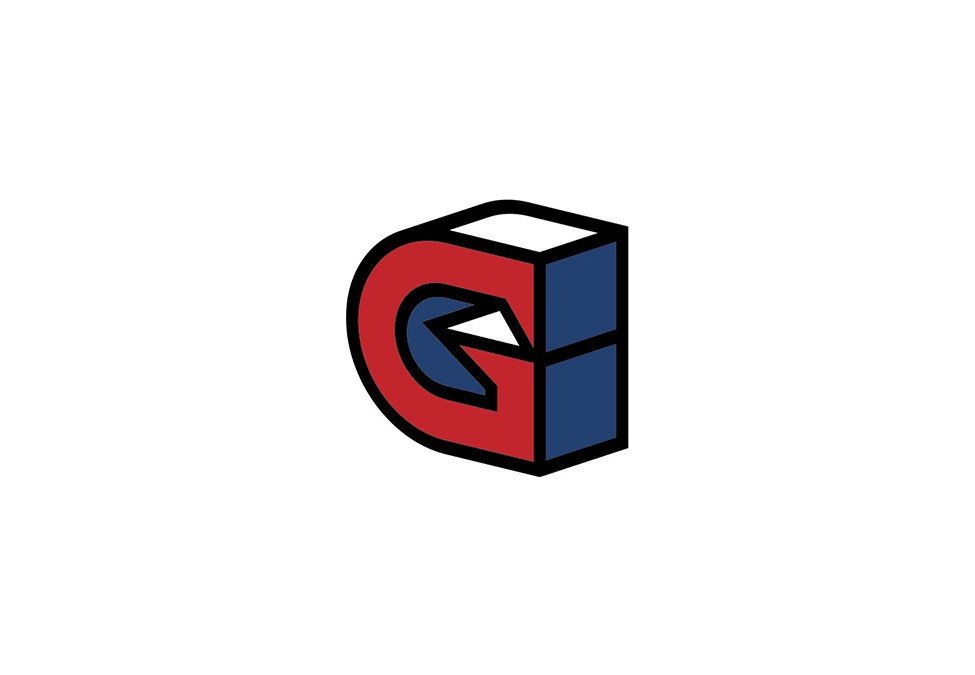
What does Guild Esports get for their £15.25m?
Guild’s influencer agreement with Beckham affords them the “non-exclusive right to use David Beckham’s name, voice, biography, image and likeness and signature to advertise and promote [Guild Esports] during the five-year term. In addition, David Beckham will, in each year during the five-year term, complete one photoshoot, make one TV/video content shoot, make two public event appearances and complete twelve social media posts about [Guild Esports]”.
How is Guild Esports going to generate income?
Guild has identified five potential routes to revenue and included revenue forecasts in their investor prospectus.
- Streaming income, documentary & competitive content series (like Ultimate Fighter): £600k in income from platform advertising and pre-roll from their player streams
- Guild is confident that it will be able to attract up to twelve sponsors before the end of the first quarter of 2021 (so within 6 months of floating) and generate a total of £5m in sponsorship revenue in the first 12 months
- Branded apparel and products: Guild believes £1m in merch sales in the first 12 months is realistic. They have enlisted Fergus Purcell to design it
- Tournament winnings: no projection shared
- Revenue share from leagues: no projection shared
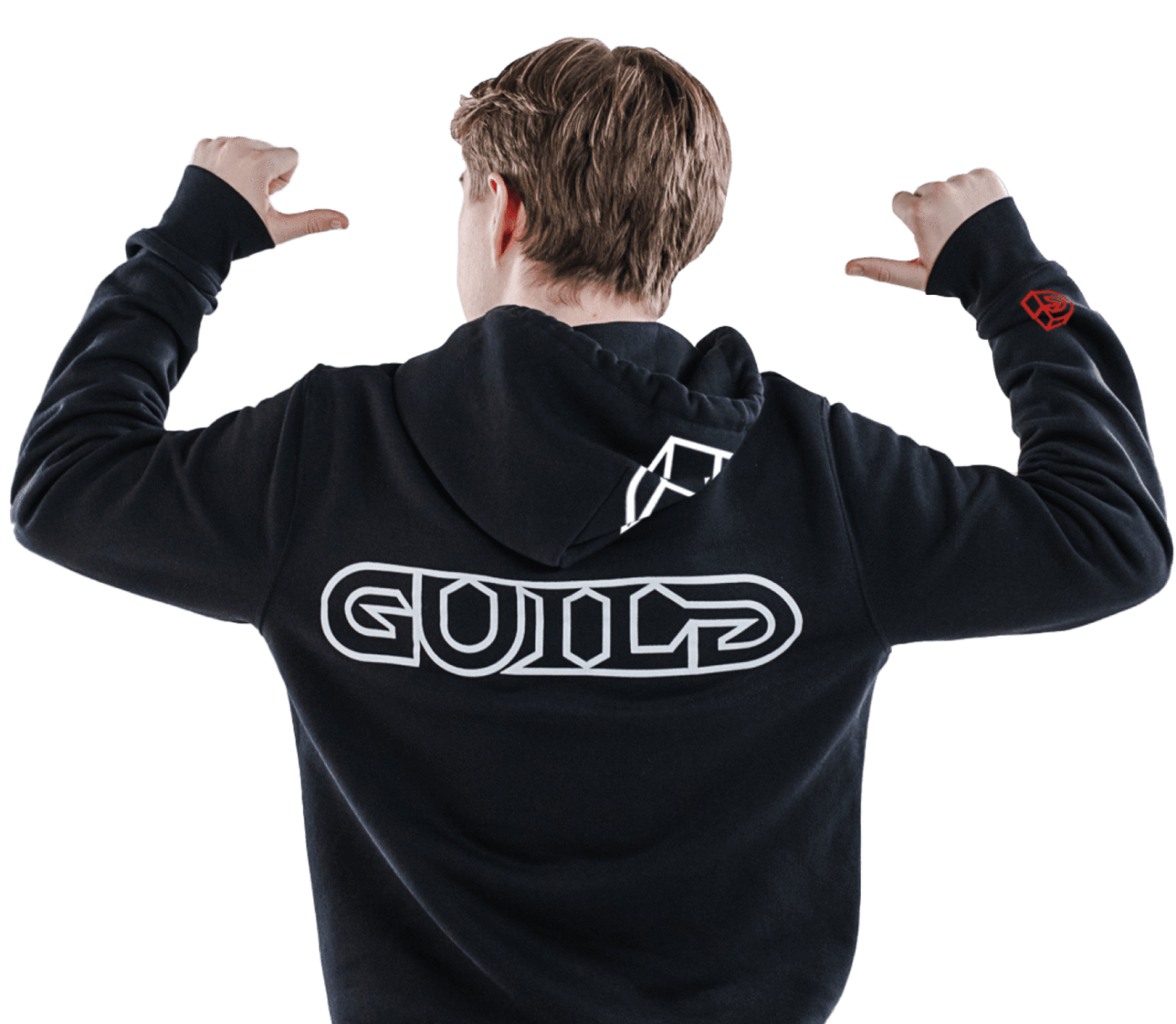
Analysis and observations
Chronology of events – Beckham was first a paid influencer before becoming a shareholder. Some may consider the opportunity Beckham had to buy shares at a preferred rate as an additional term negotiated to profit further from the relationship, rather than being influenced by a passion for esports, especially given the 4-month timeline between transactions. Scroll to the bottom of this page to see the timeline of key events in Guild Esports short life so far.
Guild Esports and Beckham’s relationship – the nature of this agreement feels very similar to many Beckham has done before with other brands. For example, Beckham is cited as a co-owner in Haig Whiskey, a partnership with drinks giant Diageo. He is also the face of the brand featuring heavily in its advertising. Although we don’t know for sure (as we’re not privy to the Haig Whiskey contract) it wouldn’t be surprising if Beckham is a paid ambassador as well as a shareholder there too.
An equity stake offers two main benefits, especially if it was purchased at a preferred rate as it has been in Guild Esports.
- Perceived authenticity that Beckham is interested in/passionate about what he is promoting, which makes the brand association more meaningful to his fanbase
- Beckham not only benefits from a guaranteed income in the short-term but the potential long term upside of enhanced shareholder value delivered by his brand association.
The one thing to note in deals like this is that the risk of success is borne by the partner company (i.e. Guild Esports) and the private investors who have purchased the shares, rather than Beckham himself.
Meeting the 15% revenue share of sponsorship and merchandise income due to Beckham – Guild Esports will need to generate £102m in revenue in their first 5 years from sponsorship and merchandise alone if they are to break even on the deal (i.e. hit the minimum guarantee without the need to use additional proceeds from the public listing, reallocate income from other sources, or give a greater share of sponsorship and revenue income).
Note, Beckham’s income is based on revenue and not profit thus maximising the upside for him and derisking the terms. Given sponsorship and merchandise are usually the two biggest income streams for teams, this leaves very little margin for Guild to cover the basic costs of operating. We predict Guild Esports will come back to the market with another share offering to raise additional capital within the first few years of operation.
Guild Esports strategy – to date it seems to almost solely rooted in the appeal of the Beckham brand. All team communications feature a reference to him and the academy business model that the team is being built on is consistent with what Beckham has done in football. It will be interesting, therefore, to see if Brand Beckham has as strong resonance with the hardcore of esports fans that make up the bulk of the engaged audience, as much as it does with wider society.
That’s not to say Guild Esports won’t attract casual gamers and turn them into esports fans through this association, thus growing the total esports audience. Certainly, entry into both Rocket League and FIFA make it easy for those new to esports and gaming to understand what is going on. However, whilst Rocket League has a decent sized viewership, FIFA’s is very small indeed. Therefore, whatever happens, a lot of new fans will need to be attracted for Guild to have an audience of any scale compared to rival teams competing in the larger esports titles (e.g. League of Legends) where existing large communities are more readily available to engage. Growing this fanbase will take a lot of investment and time and success won’t be solely predicated on Guild’s ability to execute. This in turn will affect monetisation of the fanbase, especially in the short to medium term.
Furthermore, over the long term, Guild Esports needs to build equity in its own brand that isn’t predicated on the Beckham association. Otherwise, they will be tied to paying endorsement money to maintain their brand value or will lose value if Beckham loses appeal and/or decides not to renew the influencer agreement. Virgin had a similar challenge with Richard Branson being so synonymous with the brand. There needs to be a path established for the Guild Esports brand to harvest the positive Beckham brand associations over the tenure of the agreement whilst creating its own identity so it is able to stand on its own two feet.
Revenue predictions – There is little evidence to suggest that Guild’s sponsorship and merchandise revenue projections (£5m and £1m in the first 12 months, respectively) are currently realistic. Based on our own experience in the space, knowledge of the broader esports commercial market, and conversations with brands approached about the Guild opportunity, they are extremely ambitious forecasts. Given the deal values of other more established top-level UK-based esports organisations, these projections must be the best case scenario.
Teams that operate in much more popular esports titles with far bigger audiences (and established brands) don’t do many (if any) seven-figure sponsorship deals, and the amount of sponsorship inventory (and respective value of this) needed to generate this return just doesn’t exist within Guild at the moment, certainly not in the volume required. If brands sign up at the deal values needed to generate this return there is a very real risk they will experience a poor return on investment (ROI) for some time, in our opinion.
Attracting 12 sponsors in the first 6 months also feels ambitious, especially at the deal value amounts Guild will need to hit the £5m revenue target. We’d question, to a degree, why the volume of partners is seen as a priority. We suspect this is because there is an expectation the teams operating in different titles will attract different partners (which in itself can cause issues and dilute value). Certainly, having more brand partners activating will amplify the team brand and enhance Guild’s media footprint (which in turn will increase the value of association), however, we’d question (as stated earlier) there is the richness and value of assets available for Guild to offer this many partners value as this stage of their life.
Major strategic partners who have an audience themselves and with a proven ability to activate well at scale are what Guild needs initially to establish itself. Sponsorship dollars may need to be forgone in the short term in return for partners that will collaborate to help them build brand value and scale of audience, as well as offering capability to establish their academy set-up. They need to build value in themselves before they try and reap it commercially from sponsor brands. It is about selling the journey, not the destination at this point.
Sponsors access to Beckham himself – people may point to the Beckham association as to what makes Guild Esports different and why these revenue targets are realistic. However, understanding how sponsorship rights work is imperative to understanding the potential value of this association to sponsors.
Guild’s investor prospectus states that Beckham’s agreement is to promote Guild Esports, not the partners/sponsors of Guild Esports. This is key. It would be unusual for a deal of this nature to have pass-through rights i.e. the ability for Guild to use the rights they have secured as part of their Beckham influencer agreement for the benefit of their sponsors e.g. having him appear in an advert of one of their sponsors. Beckham just wouldn’t agree to this, certainly at this level of investment. Why? Because it would impact his ability to do deals with other brands directly himself and it would impact his value to other ventures, like Inter Miami.
Even if pass-through rights were secured, the volume of rights Guild have as part of the Beckham deal is minimal and there wouldn’t be the volume to offer to multiple partners to raise the revenue needed (and let’s not forget Guild would want to retain some to promote the team). Even if you deem there are, the brands could go to Beckham themselves directly and secure the rights at a cheaper price than they would pay for them through Guild i.e. Guild have paid £2.25m to Beckham for the rights in year 1 and forecast they will turn this into £5m of sponsorship revenue in 12 months. If I were a brand and wanted a Beckham association, I’d go direct and pay half the cost. There is little to no value in the Guild Esports brand without Beckham at this point in time.
It’s key prospective sponsor brands do their due diligence. They shouldn’t go in with an expectation they will be able to also trade off the Beckham name. It may be that Beckham will provide additional access that is not outlined in the influencer agreement, as part of being a shareholder and with the interest of driving maximum value in the Guild Esports brand. In this case, there may indeed be enough value for brands to leverage this association. However, we doubt this exists. It is more likely it would be discretionary and this can’t be relied upon. Firm commitments should be sought, for the benefit of both parties.
Our concern here is that brands unfamiliar with esports get blinded by the Beckham brand ignoring other key criteria they should be analysing in making a rational sponsorship commercial decision about whether they sponsor Guild and at what level of investment. This halo-effect of association could result in them overpaying and ultimately not being able to justify ROI down the track.
In our opinion, this risk is something the whole of UK esports should be wary of. We believe Guild’s success or failure could have a material impact on the success of UK esports scene more widely. If brands enter esports based on the power of, and trust in, the Beckham brand and their expectations aren’t realised, it is likely they will say ‘esports doesn’t work as a brand platform’ rather than understanding it may have been the way they calibrated their deal.
We have seen this happen before in UK cycling where Team Sky’s success became a beacon for investment in the sport. Brands piled into other properties thinking all they had to do was get into cycling to enjoy returns. Poor advice, over-inflated rights fees, a lack of expertise in delivering brand value and a dearth of valuable rights all led to a quick exodus by a lot of big brands and the sport now once again struggles to attract global and sophisticated brands into the space.
Growing and monetising the fanbase – In regards Guild’s merchandise revenue projections, we have only witnessed these sorts of revenue levels (£1m in year 1) from a select few established big esports teams like Faze Clan and 100 Thieves – but they are the exception at the moment, not the rule. They operate in the biggest esports titles globally which as we have already said, Guild don’t. The Beckham brand will certainly offer wide appeal, and buyers of merchandise won’t necessarily just be esports fans, but we think it is a tough ask to reach these levels. That said, it is a far more realistic target than for sponsorship.
Guild talk of attracting 1m fans through a free membership offering in their first year. This may be the audience they think they’ll be able to monetise. Based on Newzoo forecasts that the Esports Enthusiast generates USD $4.94 (£3.74 at the time of writing) per fan annually, this would mean (as a rough rule of thumb) Guild would need to get 267,380 fans all buying merchandise in 12 months. Their current Twitter following is just under 8,000 and they gained about 2000 followers in the last month. Gaining Twitter followers, we would suggest, is easier than getting member sign-ups. For Guild to reach 267,380 fans they need to attract 21,615 new followers a month for the next 12 months and monetise every single one to reach this target – a 10x increase in growth based on current performance.
The current Guild Esports player base also doesn’t have a significant reach and so can only make minor contributions to the team brand. Two of the four players have under 5000 Twitter followers (Twitter is a good measure of esports player appeal given its popularity as a platform with esports fans), and whilst the others are bigger at circa 16,000 and 54,000 respectively, they pale in comparison to esports starts in other titles.
Word is Guild is looking to expand into both Fortnite and CSGO, whilst also signing up additional influencers. Obviously, if they did this, and depending who it was, they may be able to generate more reach, engagement and revenue. However, their cost base would also go up significantly.
Tournament prize money – Currently esports teams make very little money from tournament winnings. Players take the majority of prize funds. This is very slowly starting to change in some cases (e.g. BLAST have increased the share of team revenue versus player in their CS:GO tournaments) but is not an industry trend and certainly couldn’t be relied upon by Guild to make significant contributions to their income, especially as they don’t even compete in the BLAST league (although as mentioned earlier, Guild apparently plans to enter CSGO in the next 6-12 months). This is something they recognise in the prospectus, however.
Franchise leagues (e.g. League of Legends, Overwatch etc) also offer a revenue-sharing plan for teams, but Guild currently doesn’t operate in a franchise title and would have to bear the additional franchise buy-in costs and get approved by the respective league before that could be a revenue stream for them.
Timeline:
- 2017 – Cyqiq Gaming Ltd founded in Ontario Canada by Kalum Hourd
- 3rd September 2019 – The Lords Esports is founded in Canada
- 14th October 2019 – Kalum Hourd made CEO of The Lords Esports
- 1st November 2019 – Cyqiq Gaming Ltd is purchased by The Lords Esports from Kalum Hourd for £11,000 by the allotment and issue of 11,000,000 Ordinary Shares in The Lord Esports at a deemed price of £0.001 each
- 11th March 2020 Subsequent investigations revealed that Cyqiq Gaming Ltd had no assets nor liabilities, contrary to the contractual terms. The Lords Esports rescinded the share purchase of Cyqiq Gaming Ltd. Consequentially The Lord Esports used the same payment mechanic to purchase the intellectual property rights generated by Kalum Hourd in connection with the business of devising, proposing and/or operating an esports team, for the same amount (i.e. £11m Ordinary Shares in The Lord Esports)
- 16th April 2020 – The Lords Esports changes the company name to Guild Esports
- 4th May 2020 – Guild Esports enters into an influencer agreement with Footwork Productions Ltd (of which David Beckham is a director) to pay a minimum of £15.25m over 5 years for David Beckham to be the ‘face’ of Guild Esports
- 12th June 2020 – Beckham invests £245,735.29 buying 24,573,529 Ordinary Shares in Guild Esports at £0.01 (1p) a share. Shares can be sold after a 12-month lock-in period
- 25th June 2020 – Guild launch with Beckham as ‘face’ of brand
- 23rd July 2020 – Guild enter the Rocket League RCLS X Series by buying out the contracts of two former Team Singularity players (Joseph “Noly” Kidd and Thomas “ThO” Binkhorst) and signing Kyle “Scrub Killa” Robertson and head coach Mike ‘Gregan’ Ellis to form a team
- 6th August 2020 – Guild sign FIFA player Niklas Raseck to represent them
- 2nd October 2020 – Guild Esports raise £20m and at a market capitalisation of £41.2m, valuing Beckham’s shares at £1,965,882.32 – a paper profit of £1,720,147.03 (before tax)
Summary
Guild Esports has extremely lofty ambitions and has gone all-in on an association with David Beckham to realise these. It is a high-risk strategy and, based on our understanding of the likely sponsorship fee levels expected for an association, it will likely be even riskier for any brands getting involved at this stage too. That’s not to say there is value to be had by partnering with Guild, it’s just a case of at what price.
It is a great commercial deal for Beckham (as we have come to expect), and a coup for the other founding investors in Guild Esports (from a perspective of the shares they hold and the returns they may enjoy once their own lock-in periods mature), as Beckham’s returns are guaranteed and all the financial risk of success resides with the individual private investors who funded the IPO by buying shares. Beckham’s only risk is reputational if the passionate esports fan base feels he has taken advantage of a situation. However, we think fans will recognise this is a commercial arrangement and if it were to fail, it will be Guild Esports themselves held accountable.
We are very keen to see Guild Esports succeed, not just because we like to see businesses with lofty goals, but because we would deem any failure to have serious consequences for the UK esports industry at large. A failing of an esports team associated with a brand of Beckham’ size would likely put off other brand investment (or seriously dent it at the very least) even if other esports propositions stand up on their own merits and operate in different areas to Guild. The level of understanding by many sponsorship decision-makers isn’t developed enough to understand this distinction. Additionally, given the broader economic climate, and many brands existing low appetite for risk, confidence would be damaged. Brands, in general, are far more fearful of making a misstep than they are confident to make something new work, especially in the face of any perceived high profile failures.
If you’re looking for advice from a gaming and/or esports agency, Strive Sponsorship can help. Contact us for sports, gaming and esports strategy, sponsorship, commercial, content, operations, investment, and communications consultancy services.



